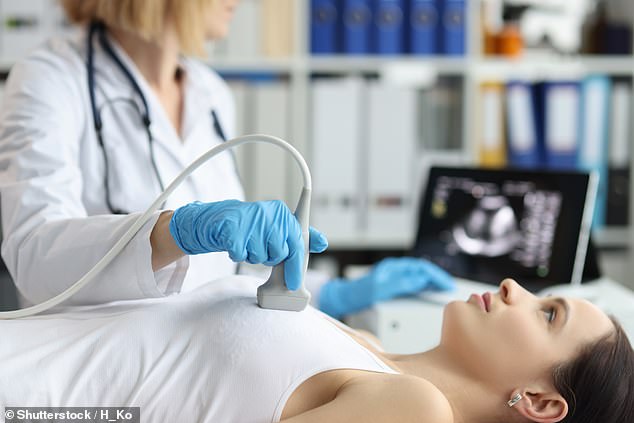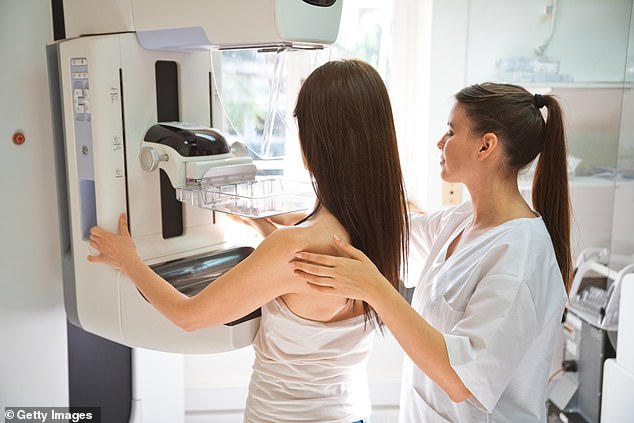Thousands of women diagnosed with breast cancer every year could avoid unnecessary chemotherapy with a new gene test
Thousands of women diagnosed with breast cancer every year could soon avoid unnecessary chemotherapy thanks to a newly approved gene test.
Currently, patients with breast cancer that may have spread elsewhere will undergo surgery to remove tumors and then receive chemotherapy to reduce the chance of recurrence.
However, for most, the risk of this happening is low, meaning many women receive unnecessary chemotherapy – which is often accompanied by debilitating side effects such as fatigue and nausea.
The new test – known as Oncotype DX – can analyze the tumor tissue and, by looking for genes associated with aggressive cancer, conclude how likely it is to return.
Many women receive unnecessary chemotherapy – which is often accompanied by debilitating side effects such as fatigue and nausea (stock image)

About four in five patients will undergo surgery to remove the cancer or the entire breast itself (stock image)
The test could benefit patients with breast cancer that has spread to the lymph nodes, the majority of whom are offered chemotherapy due to fears that the cancer has spread to other organs.
Studies show that the device, which costs around £2,000 per test, can identify the 85 per cent of this patient group whose cancer is unlikely to return – saving them from having to receive chemotherapy.
Now the NHS spending watchdog has announced that the majority of postmenopausal women with early-stage breast cancer, which has also spread to the lymph nodes, will be able to have the test.
The decision is expected to benefit more than 3,000 women every year. Around 55,000 women and 400 men are diagnosed with breast cancer in Britain every year, but advances in treatment over the past decade mean that almost nine in 10 are still alive five years after diagnosis.

Breast cancer accounts for approximately 30 percent of all new cancer cases in women each year (stock image)
About four in five patients will undergo surgery to remove the cancer or the entire breast itself.
The Oncotype DX test involves taking a sample of the breast tumor during surgery to remove the cancer.
This is then sent to a laboratory in the US where it is analyzed for 21 different genes that have been shown to predict when the cancer will come back. If fewer than 16 of these genes are present, the patient is told that he or she probably does not need chemotherapy. If 16 or more are found, chemotherapy is likely needed.
‘Currently it is difficult to know who will benefit from chemo, so we are giving chemotherapy to most patients as a precaution,’ says Prof Simon Holt, surgical oncologist at Swansea University. ‘The Oncotype DX test allows us to accurately select the patients who need the treatment most. It also gives the rest of the patients confidence that the cancer will not come back.’
